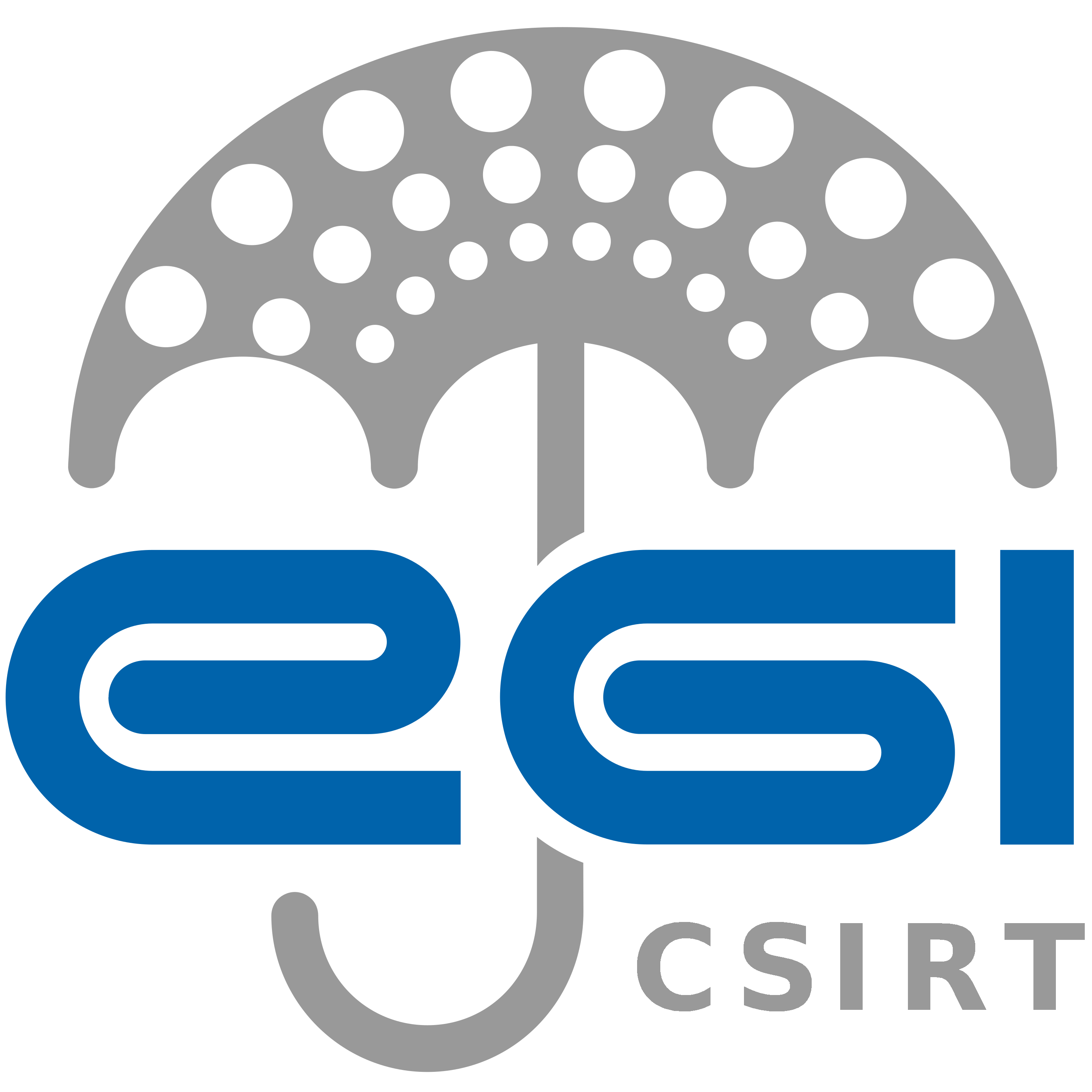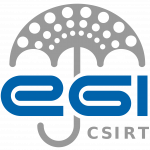[TLP:WHITE]
This page covers ongoing attacks. As the TLP:GREEN nature of this link was breached and it can only be considered TLP:WHITE now, this page may not be updated anymore, except for TLP:WHITE data (last update: 2020-05-18 11:00:00). For more information regarding ongoing investigations and cooperation possibilities, please contact irtf@mailman.egi directly.
EGI and its supporting organisations deeply care about their international partners and peer infrastructures, and although so far there is no operational impact on EGI, the EGI CSIRT strongly believes in protecting the community and is actively supporting and coordinating the response to the current security incidents affecting the academic and research sector.
This page covers **TWO** security incidents that may or may not be correlated.
Incident #EGI20200421
Summary
A malicious group is currently targeting academic data centers for CPU mining purposes. The attacker is hopping from one victim to another using compromised SSH credentials.
The compromised hosts are turned into different roles, including:
- XMR mining hosts (running a hidden XMR binary)
- XMR-proxy hosts ; The attacker uses these hosts from the XMR mining hosts, to connect to other XMR-proxy hosts and eventually to the actual mining server.
- SOCKS proxy hosts (running a microSOCKS instance on a high port) ; The attacker connects to these hosts via SSH, often from Tor. MicroSOCKS is used from Tor as well.
- Tunnel hosts (SSH tunneling) ; The attacker connects via SSH (compromised account) and configure NAT PREROUTING (typically to access private IP spaces).
Key points:
- Connections to the SOCKS proxy hosts are typically done via TOR or compromised hosts.
- The attackers uses different techniques to hide the malicious activity, including a malicious Linux Kernel Module (https://github.com/m0nad/Diamorphine).
- It is not fully understood how SSH credentials are stolen, although some (but not all) victims have discovered compromised SSH binaries.
- At least in one case, the malicious XMR activity is configured (CRON) to operate only during night times to avoid detection.
- There are victims in China, Europe and North America.
Indicators of compromise
Network based
| IP | Comment | Role in attack |
|---|---|---|
| 91.196.70.109 | XMR mining server | Coordinate the XMR activity |
| 149.156.26.227 | Victim server andromeda.up.krakow.pl | Malicious IP used for SSH logins + running SOCKS proxy |
| 149.156.26.56 | Victim server vega.up.krakow.pl | Malicious IP used for SSH logins + running SOCKS proxy |
| 142.150.255.49 | Victim desktop UTORONTO | Source for attack on .ca hosts |
| 159.226.234.29 | Victim server at CAS, China | Malicious IP used for SSH logins + running SOCKS proxy |
TOR hosts (SOCKS proxy users):
51.77.135.89 (also used for malicious SSH logins)
51.15.177.65
51.75.52.118
51.75.144.43
51.79.53.139
51.79.86.181
212.83.166.62Additional hosts suspected to be involved, as they were found using the SOCKS proxy on a compromised host:
159.226.88.110 (CSNET, China. TCP/44300 access from krakow.pl): Being investigated by CSTCERT
159.226.62.107 (CSNET, China. HTTPS access from krakow.pl): Compromised (XMR mining) and reinstaled by the admin ~2020-05-08
159.226.170.127 (CSNET, China. TCP/21 access from krakow.pl): Being investigated by CSTCERT
132.230.222.12 (Uni-Freiburg. SSH access from krakow.pl): Investigated (malicious SSH binaries found) (not clear if they are involved in this or just 20200512)
192.154.2.203 (UCLA, USA. SSH access from krakow.pl): Notified.
129.49.37.67 (SUNYSB, USA. Access from a SOCKS proxy): Notified.
129.49.170.118 (SUNYSB, USA. Access from a SOCKS proxy): NOT NotifiedExample:
client[4] 51.75.52.118: connected to 159.226.88.110:44300
client[4] 51.75.52.118: connected to 132.230.222.12:22
client[11] 51.75.144.43: connected to 159.226.170.127:21
client[6] 51.75.144.43: connected to 159.226.88.110:44300It is helpful to also check all existing connections (lsof) and NAT configurations (iptables).
Filesystem
XMR mining, LKM and host configuration
- Check for Linux Kernel Modules:
Run kill -63 $(random pid) followed by lsmod, then search for modules with names like: diamorphine, scsi, iscsi, readaps
- Check the content of
/etc/cron.hourly/0anacron - Check for the following files:
/home/*/.mozilla/xdm
/tmp/.dbs*
/tmp/.lock
/tmp/aes.tgz
/tmp/db.tgz
/tmp/dbsyn*
/tmp/reserved
/tmp/systemdb
/tmp/updatedb
/tmp/check_power
/tmp/hdshare
/tmp/readps
/usr/bin/on_ac_power (if different from packaged version)
/usr/lib/libocs.so
/usr/lib64/.lib/l64
/usr/share/aldi.so
/usr/share/sos/rh.pub (if different from packaged version)
/var/tmp/.lock
/var/tmp/.lock/clogs
/var/tmp/.lock/cpa.h
/var/tmp/.lock/ologs
/wlcg/arc-ce1/cache/.cache
Incident #EGI2020512
Summary
A malicious group is currently targeting academic data centers for unknown purpose.
The attacker is hopping from one victim to another using compromised SSH credentials.
Indicators of compromise
Network based
| IP | Comment | Role in attack |
|---|---|---|
| 149.156.26.227 | Andromeda.up.krakow.pl (host now cleaned) | IP used for SSH logins |
| 202.120.32.231 | Shanghai Jiaotong University | IP used for SSH logins |
| 202.120.58.243 | Shanghai Jiaotong University | IP used for SSH logins |
| 202.120.58.244 | Shanghai Jiaotong University | IP used for SSH logins |
| 2001:da8:8000:6300::/64 | Shanghai Jiaotong University (?) | IP used for SSH logins |
| 159.226.161.107 | CSTNET, China | IP used for SSH logins |
| 159.226.234.29 | CSTNET, China | IP used for SSH logins |
It is helpful to also check all existing connections (lsof) and NAT configurations (iptables).
Filesystem
Check for the following files:
/apps/.ior/read/.terma
/apps/.ior/read/.termb
/etc/fonts/.fonts (suid binary for privileged escalation (contains `setgid(0);setuid(0);execl('/bin/bash/', {'bash', NULL}, NULL)`)
/etc/fonts/.low (Log cleaner, capable of removing logs and entries matching specific users (during some time period) in most log files)
/etc/terminfo/.terma
/etc/terminfo/.termb
$HOME/.mozilla/plugins/.fonts
$HOME/.mozilla/plugins/.low
$HOME/.mozilla/plugins/.aa
$HOME/.mozilla/plugins/test
/usr/lib64/.lib/l64
/var/games/.terma
/var/games/.termbContact
If you have any additional information or any match at your site, please contact EGI CSIRT at irtf@mailman.egi.eu
In case of TLP:RED data, use GPG: A97F 3BDD F0EE 01A1 176C C13A 93BF 7F91 5696 F750



Recent Comments